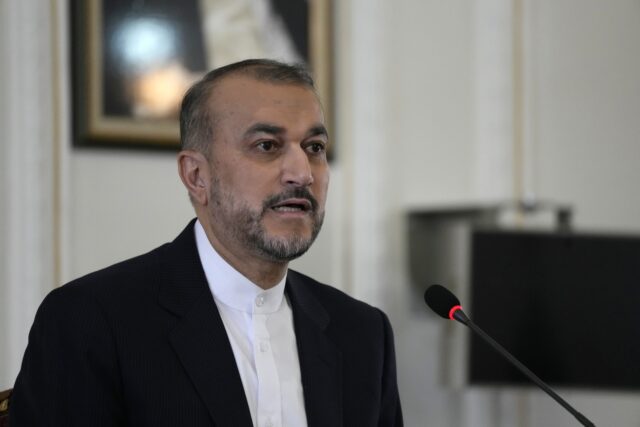Iran’s Foreign Minister Hossein Amirabdollahian, a hard-liner close to the country’s paramilitary Revolutionary Guard who confronted the West while also overseeing indirect talks with the U.S. over the country’s nuclear program, has died
Iran’s Foreign Minister Hossein Amirabdollahian, a hard-line diplomat, dies in helicopter crashBy JON GAMBRELLAssociated PressThe Associated PressDUBAI, United Arab Emirates
DUBAI, United Arab Emirates (AP) — Iran’s Foreign Minister Hossein Amirabdollahian, a hard-liner close to the country’s paramilitary Revolutionary Guard who confronted the West while also overseeing indirect talks with the U.S. over the country’s nuclear program, died in the helicopter crash that also killed the country’s president, state media reported Monday. He was 60.
Amirabdollahian represented the hard-line shift in Iran after the collapse of Tehran’s nuclear deal with world powers after then-U.S. President Donald Trump unilaterally withdrew America from the accord. He served under President Ebrahim Raisi, a protégé of Supreme Leader Ayatollah Ali Khamenei, and followed their policies.
However, Amirabdollahian also was involved in efforts to reach a détente with regional rival Saudi Arabia in 2023, a move eclipsed months later by tensions that arose over the Israel-Hamas war. But he remained close to the country’s paramilitary Revolutionary Guard, once praising the late Gen. Qassem Soleimani, slain in a U.S. drone strike in Baghdad in 2020.
“You should thank the Islamic Republic and Qassem Soleimani because Soleimani has contributed to world peace and security,” Amirabdollahian once said. “If there was no Islamic Republic, your metro stations and gathering centers in Brussels, London and Paris would not be safe.”
Amirabdollahian served in the Foreign Ministry under Ali Akbar Salehi in 2011 through 2013. He then returned for several years under Foreign Minister Mohammad Javad Zarif, who was a key player in the nuclear deal reached under the administration of the relative moderate President Hassan Rouhani.
But Zarif and Amirabdollahian had a falling out, likely over internal differences in Iran’s foreign policy. Zarif offered him the ambassadorship to Oman, still a strategically important post given the sultanate long serving as an interlocutor between Iran and the West. But Amirabdollahian refused.
He became foreign minister under Raisi with his election in 2021. He backed the Iranian government position, even as mass protests swept the country in 2022 after the death of Mahsa Amini, a woman who had been earlier detained over allegedly not wearing a hijab, or headscarf, to the liking of authorities. The monthslong security crackdown that followed the demonstrations killed more than 500 people and saw over 22,000 detained.
In March, a United Nations investigative panel found that Iran was responsible for the “physical violence” that led to Amini’s death.
During the Israel-Hamas war, he met with foreign officials and the leader of Hamas. He also threatened retaliation against Israel and praised an April attack on Israel. He also oversaw Iran’s response to a brief exchange of airstrikes with Iran’s nuclear-armed neighbor Pakistan and worked on diplomacy with the Taliban in Afghanistan, with whom Iran had tense relations.
Amirabdollhian is survived by his wife and two children.
___
Associated Press writer Amir Vahdat in Tehran, Iran, contributed to this report.

COMMENTS
Please let us know if you're having issues with commenting.